Books read in 2021
November 20, 2022
Posting this in November 2022 still counts, right?
Severance - Ling Ma

Severance is a book about a different pandemic. I picked it up as a gift for Hannah when our favorite bookstore re-opened for pickup orders a few months into the mess, and read it after her. I saw it as an apt way to start what was meant to be the post-pandemic year that wasn’t.
The book’s scenes flash back and forth between pre-plague fatigue of urban life and zombie horror. The story is told through the eyes of an immigrant in NYC, who after growing up in the US still can’t fully assimilate to its culture. While the protagonist and I have very different background cultures, I saw hints of myself in her - the street photo blog, the return trips to the homeland that don’t feel quite right, friendships that feel incomplete, city life with all its contradictions, etc.
Published in 2018, the book is full of gems about how a pandemic makes people yearn for the old routines they hated so much. For example:
To live in a city is to take part in and to propagate its impossible systems. To wake up. To go to work in the morning. It is also to take pleasure in those systems because, otherwise, who could repeat the same routines, year in, year out?
Ma’s book is a critique of our modern disconnected lives, of capitalism, and the habits that we form ignoring the people around us. It reminded me at times of Solnit’s A Paradise Built In Hell, which I reviewed last year. When the apocalypse is here, our behavior changes. Unfortunately, when the apocalypse stretches long enough, our new ways turn into our usual patterns, forgetting that what we lived through was catastrophic to begin with.
Los Palimpsestos - Aleksandra Lun

A short novel about literature, history, and the meaning of a “mother tongue.” Set in a psychiatric hospital frequented by writers who have decided to write in adopted languages, Los Palimpsestos is packed with word games and dark humor. It repeatedly questions nationality and identity, topics that my own readers will know I appreciate. Lun uses famous authors and their works as a way to bring her main character to life. Her main character, Przęśnicki, and his experiences and hallucinations are contrasted with those of fictional versions of real people.
A “palimpsest” is a material that has been written on more than once, with the earlier writing incompletely erased and often still legible. Our brains, layered with experience and language, are Lun’s metaphorical palimpsests. Among many other stand-ins for the notion of overwriting things, Lun also takes a much more literal angle when Przęśnicki is forced to write his own novels on the pages of old newspapers. Lun’s background, a Pole living in Belgium and writing in Spanish, makes the self-referentiality of the book all the more delicious to navigate.
This was probably my favorite book of the year, and I’m grateful to my friend Alvaro Videla for recommending it.
What Tech Calls Thinking - Adrian Daub

I don’t recall how I first learned about this book, but I enjoyed it. Daub is a literature professor at Stanford who lives in San Francisco. While he is embedded in the same navel-gazing tech environment as me, he’s involved in it from a totally different angle. Part history book, part philosophical critique, and part literary mix-and-match, Daub’s book does a great job of listing the underlying sources of currents that flow through Silicon Valley’s worldview.
What Tech Calls Thinking starts by laying the roots in the 60s with Marshall McLuhan and Timothy Leary’s work, studying media and psychedelic drugs respectively. Daub draws analogies from that era’s “dropping out” and today’s Silicon Valley’s elite college dropout narrative. He then goes back to McLuhan to discuss the responsibility (or lack of it) that platforms have towards the content their users pander, whether that is reviews on Yelp or news on Twitter or Facebook. He even goes as far as critiquing specific billboards seen on the 101 and tracing the philosophy behind Pixar and Disney movies - examples of what he calls a crunchy flavor of counterculture. In Daub’s view, Silicon Valley’s posturing inconsistently flip flops between tropes in anarchism and libertarianism.
While I found the book really enjoyable, Daub errs by overgeneralizing and smoothing over nuance (there’s more than one kind of tech-bro, after all!). For example, as Daub works his way through the roots of Thielian thought, he jumps back and forth between Nietzsche, Rand, and Girard, barely stopping to wonder how other currents in Silicon Valley might disagree with any of those sources, or Thiel himself. This is a fault that I’m happy to let slide in a short 150-page book, but presenting “Tech” as a monoculture is a trope of its own.
Payments Systems in the US, - Carol Coye Benson, Scott Loftesness and Russ Jones

This book is considered by many to be the Bible of the fintech/payments world. While reading it, something that struck me was how deep the flow of transactions explanations were and how many layers discussed which players are involved, as opposed to the actual interfaces and data passed around. As a software engineer, I’d expect the opposite - well defined interfaces in front of black boxes. When I picked up Payments Systems, I thought it’d cover the data being sent at transaction time, and the equivalent of Visa, MasterCard, or ACH’s APIs.
While this was an interesting book, covering the path dependence of the US’s payment systems, I think there are better resources for people hoping to build and coming at it from a tech background. I was recommended The Anatomy of the Swipe by Ahmed Siddiqui as a potential follow-up along those lines, but I don’t think that one fits the bill either.
Against The Gods - Peter Bernstein

When I decided to join Vouch, I asked our CEO, Sam, what I should read to get a sense of the insurance space. He recommended Bernstein’s book among a few others, and I made an effort to read at least one before starting. Against The Gods was already on my shelf, so that was an easy choice.
The book is a fun historical survey - a string of anecdotes and stories on the origin of probability and statistics. Through its chapters, Bernstein profiles influential mathematicians and applied scientists. This is a great book to go deeper into the history of concepts that we take totally for granted and as straightforward as the “average” to the complexity of chaos theory and behavioral finance. I particularly liked the framing of derivatives and insurance at the end of the book, as it encapsulated the value of modern finance as a backstop to much more complex economic activity which would not exist without these seemingly value-less derivative contracts.
Death's End - Cixin Liu

The last book in the Remembrance of Earth’s Past series was good, yet a bit disappointing. In trying to achieve too much and expand its scale in both time and space, Cixin Liu ended up boring me. The story that closes the trilogy continues to use complex scientific ideas based in current theory as plot devices, from curvature propulsion to collapsing dimensional fragments, but this one didn’t bring too many new questions to the table. Instead, Death’s End pushes on the same game-theory driven narrative from the previous books, to the point that it felt repetitive. The framing is interesting, with the interspersing quotes from a book within the book, “A Past Outside of Time.” The main storyline keeps you on your feet as the characters travel in time and space, but the abrupt jumps were a bit unnecessary. I preferred the slightly less intense pace of the first two books.
Ultimately, if you enjoyed the first two, I think the third one is worth it just for closure. Death’s End takes the theme of human interdependence a level deeper, asking not whether we depend on each other, but whether the universe’s fate depends on every single one of its atoms (🤯). “The precision of Nature can sometimes exceed the imagination.”
Blitzscaling, - Reid Hoffman

I read this one for a book club at work. One of the reasons I decided to work at Vouch was that I wanted to live through hypergrowth, and understand how startups operate and change as they scale. Hoffman’s book is all about that, focusing on very fast growth and the problems that come with it.
While many of the lessons tailored for SaaS businesses and consumer startups in Blitzscaling don’t really apply to the business I’m in now, seeing how other companies have dealt with the organizational strain and other challenges that come from fast growth was very helpful. The points around deliberately letting fires burn and de-risking ideas with MVPs and fast-follows were not particularly new, but seeing them framed as scaling tools with examples from startups that “made it” was helpful as we ourselves transition from tribe to village and to a city scale company.
I’m excited to deal with the chaos as we grow, and having a space to share with others within the company was very fun. Hopefully soon I will be able to share some war stories of our own blitzscaling.
Lombard Street - Walter Bagehot
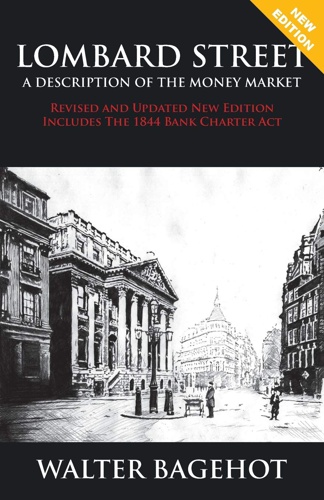
A classic (if not the classic) text of monetary policy, Lombard Street reads as the ~150 year old book that it is. I read it as part of Columbia’s Money and Banking MOOC, and found it to be a slog. Even though the book is short and presents very clear ideas, it is written by a journalist who assumes an audience who’s reading in his present time, referencing events and people who the modern reader will have little to no context on.
The name of the book is a reference to the London street where banks have historically been located, similar to Wall Street in New York City, although in discussing the book with friends, they immediately assumed I was talking about the windy street in San Francisco. In Lombard Street, Bagehot explains the mechanisms behind XIX century corporate finance and banking in an accessible language, focusing on how the Bank of England had historically responded to crises, and what other lenders of last resort can learn from their actions to counter their own financial panics.
The essence of the book is summarized in Bagehot’s dictum: “Lend freely, at a high rate of interest, on good banking securities.”
Lombard Street is a good book, but unless you’re interested in learning about the specifics of English financial history, I’d look for a modern discussion on money markets, instead.
La ciudad y los perros - Mario Vargas Llosa

In my quest to read more Latin American classics, I picked up the commemorative edition of this novel thinking that if it was being celebrated it must be one of his best. I was not disappointed, but I didn’t like it as much as I expected to.
La ciudad y los perros follows a group of kids in a military high school in mid-century Lima – modeled on the one the author attended growing up. Contrasts between civil and military cultures, young and old worldviews, rich and poor lifestyles, and even the differences between “those who leave and those who stay” recur throughout the book. The polyphonic narrative, and the jumping in time kept me interested, but at times it wasn’t very clear who was talking, or why a fragment is being presented to the reader. The more you read, the more the latent content of previous chapters start to come into sight, making the last few chapters way more exciting than the first few.
For The Time Being - Annie Dillard

This is a meandering book that asks existential questions about ourselves, about the chaos of every day life, and about time. Dillard’s writing is beautiful, but confusing. She presents small seemingly random vignettes to illustrate her basic idea, and haphazardly adds strokes of new information until a barely clear picture materializes. At times, reading For The Time Being feels like reading through a draft waiting for edits, but that aesthetic is also part of what makes the book pleasing.
Bringing in examples from archeology, religion, classic philosophy, and (repeatedly) the pathology of birth defects in humans, Dillard helps us understand scale and our place in the universe. We’re small, and our lives short. I really enjoyed it.
The Ascent of Money - Niall Ferguson
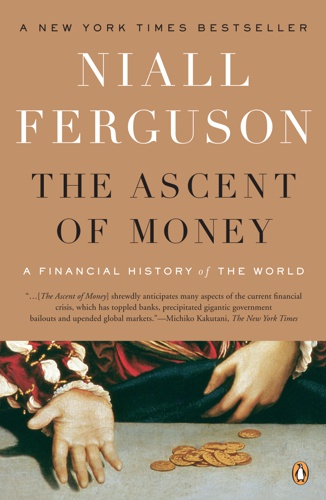
Starting with descriptions of basic currency and goods markets, and working its way up into bonds, equity, and insurance markets, Ferguson shows the reader a progression in the complexity of the debt pyramid that underlies modern society. The book cycles through booms and busts, bubbles and wars. The Ascent of Money draws out causal relations between events, policy choices, and technological change, always through a fairly neoliberal lens. Discussing the banking innovations that financed Renaissance Florence, the role that networked trust played in the Rotschilds gambling in Waterloo and then in the US Civil War, and the appearance of joint stock companies, the book continuously highlights the relationship of public and private finance in shaping modern human history.
A history book on monetary finance written right before the financial crisis of the late aughts could either be absolute trash or prescient. Ferguson’s Ascent of Money falls in the latter camp, calling out bank undercapitalization and creeping globalization as the main cracks in the US’s risk management programs. This bit of insight gave me confidence that the rest of the book was trustworthy post-hoc.
The one piece I felt was missing was the more philosophical underpinning to the history laid out by Ferguson. For the next book I read on this subject I think I’ll look for something focusing more on the history of economic thought, and less so on its practical aspects.
Unlocking Leadership Mindtraps - Jeniffer Garvey Berger

When I became a manager at Apple I got a chance to work with a coach through one of their many training programs. I kinda cheated the system because by the time my first sessions were scheduled I already knew I was going to quit. Ultimately, the coaching sessions focused on how to help the team transition to a new manager, plus a little bit of pattern matching to what would be useful in my next role. This book was the coach’s recommendation given my situation.
In Unlocking Leadership Mindtraps, Garvey Berger isolates five different patterns that she has seen herself and other leaders fall into as they navigate complex environments: the desire for simple stories, our sense that we are right, our desire to get along with others in our group, our fixation with control, and wanting to protect our ego.
The ideas were interesting, and it’s a quick easy read, but I was not a fan of the style. It reminded me a bit of The Goal, where the illustrative stories are a bit too on the nose, even if the concepts are valuable.
Slouching Towards Bethlehem - Joan Didion

I read this essay collection in a few sittings while we were seeing Hannah’s family in Michigan last summer. I enjoyed most of the pieces included, although a few of them (like the John Wayne bit) felt irrelevant. It’s a mix of cultural snapshots from a lost time worth studying and bubblegum articles meant to be read and tossed even when they were first published. Luckily, the latter are a minority, and the depth of the other essays makes the book worthwhile.
Slouching Towards Bethlehem is all about realism. It presents stark differences between East and West US, rural and urban, the nostalgia for the naïveté of childhood and the jaded cynicism of adulthood. Didion’s journalistic work shines in contrasting the optimistic American Dream narratives against the reality of a fragmented society. She questions democratic institutions and our notions of morality. Her critique is not quite pessimistic, and not quite progressive. Unlike many of her readers assume, her commentary is not addressed at the edges of society, but at it’s core. Reading it half a century after its publication, having walked the same streets in the Haight and feeling the same dread as she likely did, seeing that human suffering is disturbing. The more things change, the more they stay the same.
Someone Who Will Love You in All Your Damaged Glory - Raphael Bob-Waksberg

There are few TV shows I’ve enjoyed so much in the last few years as BoJack Horseman. After watching it a second time, we saw Bob-Waksberg give a talk in San Francisco on his book, and I decided to read it.
Someone Who Will Love You in All Your Damaged Glory is full of surreal short stories with the same creative dark humor as his TV show. It is a book about relationships of all kinds, romantic, familial, friendships and even non-human ones. My favorite story was probably Rufus which is told from the perspective of a dog who narrates his own life.
The Dispossessed, - Urusula K. Le Guin

A mainstay of the US sci-fi canon, Le Guin’s work had been on my radar for some time, and I had a hard time picking which of her books to read first. I picked The Dispossessed kind of on a whim after seeing it available at the San Francisco Library.
The Dispossessed is a story set between two heavily ideological planets, an anarchist world populated by exiles and the capitalist society they left behind. The narrative alternates between past and future and between the two worlds as it follows Shevek, a physicist who is researching time in Anarres (the anarchist planet). As I read it, I couldn’t help thinking how much of the influence of 70’s Berkeley comes through the dialogue - from the very obvious capitalist/anarchist dichotomy to the commentary on gender roles and relative moralities. The political critique was definitely my favorite part of the book.
While I found the world-building to be creative and the character development far better than most sci-fi I’ve read, it barely met the high expectations I had coming in. I’m going to have to read more Le Guin.
The Yellow Wind - David Grossman
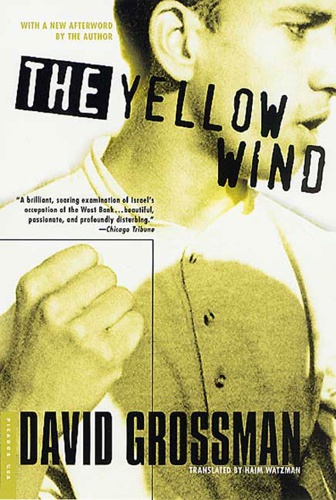
The Yellow Wind has likely been in my to-read list for the longest of this year’s batch. I found a used copy of it when Green Apple Books was closing out their annex room. Logically, I bought it.
I first heard of Grossman’s book back in 2010 when I was living in Israel. During a lesson about the Arab-Israeli conflict, Sergio Edelstein, the head of the organization running the program I was in, read us a section of The Yellow Wind. In it, the author visits a school in the occupied territories. The story stuck with me ever since:
"... A little while ago the military governor visited the kindergarten and asked if I teach the children bad things, against Israel and the Jews."
"And what did you say to him?"
"I said that I don't. But that his soldiers do."
"What do you mean?"
"What do I mean? I'll explain. When a child goes for a walk outside and sees a tree, he knows that the tree bears fruit and leaves, right? When he sees a soldier, he knows very well what that soldier does. Do you understand?"
"What do soldiers do?" I ask a girl of about four, called Naima, green-eyed, little gold earrings in her ears.
"Searches and beatings."
"Do you know who the Jews are?"
"The army."
"Are there other Jews?"
"No."
Exactly. Grossman’s book is grotesque, but at the same time also very easy to read. Each chapter is a short narrative over a set of interviews. It is a deep exploration of how otherness shapes life on both sides. It is a collection of intimate conversations about how the conflict has broken everyone involved, while also defining their lives. It does a great job of highlighting the humanity on both sides.
The book was published in ‘87. The edition I read was more recent, with a foreword from ‘01. It’s tough to read it in ‘21 and realize that we’re still fighting the same fights.
Distancia de Rescate - Samanta Schweblin
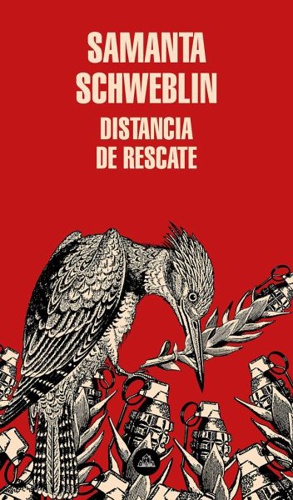
I found Schweblin on a listicle of breakout Latin American female authors. The piece compared her work with Borges’ and Cortázar’s. High praise. The reviews looked great, and the prizes it’d received made it look promising, but honestly I didn’t love it.
Distancia de Rescate (translated in English to Fever Dream) is a suspenseful horror book - not my usual. The story revolves around Amanda, a woman who leaves the city with her daughter to spend the holidays in the countryside. They become friends with their neighbors, whose superstitions and supernatural experiences start to bleed into the newcomers’ lives until things get out of hand. The novel is a critique of modern agriculture, and how monocultures affect the communities where they are grown. The author never fully reveals which of the plot’s twists are caused by toxic intensive agriculture and what’s just the effect of dark magic, both of which are present in the rural Argentinian setting.
Between flashbacks, the occult, and odd bursts of spiritual non-sequiturs, it’s not the easiest story to follow. Nevertheless I appreciated the contrasts of rural and urban living, the details about Argentinian culture, and the overall tone of Schewblin’s writing.
The Deficit Myth - Stephanie Kelton

I skeptically read this mid-2021 when inflation hadn’t hit, and MMT was still being pushed as both a form of pandemic relief and a way out of all our other problems. By now, the MMT crowd has quieted down. The book is actually less deluded than I expected. I ended up agreeing on many key points, but ultimately didn’t buy it.
The core idea of MMT is that incurring debt, even at high nominal levels, is fine, as long as inflation remains in check. The nominal number doesn’t matter if your economy is still running and government hasn’t lost the reins. Reframing of government’s constraint to be inflation instead of nominal budgets works if you can actually measure and forecast inflation. That’s a big if.
The other main shift Kelton proposes is thinking of spending as something that happens before, and not after collecting taxes. The S(TAB) vs (TAB)S notion seems right: the government can decide to spend money it does not yet have, kicking off a wave of Ricardian equivalence reactions. However, this only matters because it allows MMT’ers to skirt checks and balances. Print and spend doesn’t require congressional budget allocation, which is great until you realize that the parties you disagree with can use the same tools.
In any case, the reason I reject this theory is that we do not live in a closed economy. Kelton’s argument falls apart if there’s international trade, and other major currencies can take over the world reserve status as you devalue your own. You can’t disregard international money markets. The whole theory rests on an assumption of a monopoly on international reserve status that in the long run has no guarantee, making the book’s proposed solutions ineffective in the long run.
For a more complete takedown of MMT I recommend Kevin Dowd’s.
What is Progress - Aldo Schiavone

Walking through the side streets of Rome, Hannah found this and bought it for me. Finding it reminded me of Benedict Evans’ “bookshops are all about tables, not shelves.” idea, as neither of us had heard of it nor its author, but the fact that it was a curated choice by the staff caught her eye.
What is Progress is a short volume in three parts. It begins with Walter Benjamin’s conception of History, emphasizing the perceived acceleration since the French Revolution and the associated positivist optimism of seemingly endless progress that followed. Schiavone points out that humanity’s acquired love of velocity (reminiscent of Italian futurists) came to a halt with the rest of modernity as we slammed into the dislocation of the world wars. He then draws an analogy between the end of the Cold War, our current context in which “the victory of capital has unified the planet” to the time of the political reforms of the late XIX and early XX. He thinks history isn’t over. Change is coming, and it’s coming at us faster.
In the second part of the book, Schiavone discusses whether humanity and nature’s progress happen in tandem, once again invoking Benjamin’s “homogenous and empty time” being filled by human history. Yes, the arrow of time moves forward, but we can’t assume that it’s path is monotonic. Human choices push us forward, and those choices can create further accumulation or cause us to lose the progress we’ve collectively made.
Lastly, a discussion on how technology and ethics are deeply intertwined, shaping society. Schiavone closes out his book by pointing out that “the history of technology and the history of human self-determination are not the same thing […] and do not proceed together. But the first is what gives the second possibility of existing. And if in the latter we can trace an arrow […] we owe this to the direction of the other.” Studying our own history is what allows us to understand what it means to be human. Humanism is what tells us how we should use our technology, and what’s worth pushing forward in the first place.
Alaric The Goth - Douglas Boin
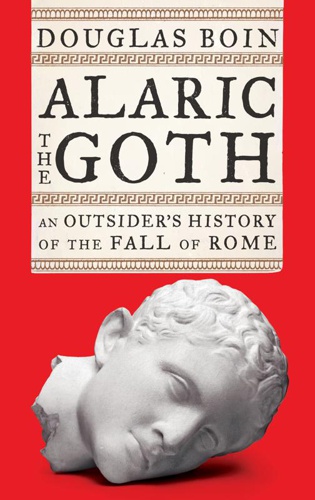
When I read Norman Davies’ Vanished Kingdoms years ago, its first pages mentioned Alaric in passing as Davies introduced the Goths and their influence in Southwest Europe millenia later. Boin’s book is similar to Davies’ in that it amplifies the stories of people who are normally marginalized in history books, but while Davies went for breadth Boin’s Alaric the Goth goes for depth.
Calling this book a biography of Alaric I doesn’t quite make it justice, as Boin uses a significant portion of the book to describe the development of Roman culture and the Empire’s policies in the centuries before his rise to prominence. Alaric is best known for becoming the king of the Visigoths, and his leading role in the Sack of Rome, but Boin shows how for decades before that he had tried to gain legitimacy as a leader within the system he ended up helping destroy, instead.
I read Boin’s book as I was traveling in Italy, which made the parallels to today’s borders and the modern equivalent of the hypocritical Romanitas ideals highlighted by Boin even more striking. Between the masterful storytelling and my own predisposition for reading about how otherness and immigration shape both our private and collective worlds, Alaric The Goth was a strong contender for my favorite book of 2021.
On Grand Strategy - John Lewis Gaddis

I found this book on the staff recommendations shelf at Dog Eared, and thought the notion of blending together leadership, history, and strategy all in one would be interesting. What I didn’t know is that grand strategy actually has a meaning in the field of international relations and the study of war. The book defines it more narrowly: “the alignment of potentially unlimited aspirations with necessarily limited capabilities,” or more simply “If you seek ends beyond your means, then sooner or later you’ll have to scale back your ends to fit your means.”
Gaddis starts out rough with chapters on Greece and Rome. Then, things get really interesting with the rise of Spain, France, and England, but takes a turn for the worse when discussing the US. The book goes from broad and magisterial to uni-dimensional. From the role played by religion and ethics in medieval war, to maritime supremacy and alliances in early industrial Europe, the chapters on the Civil War and the twentieth century felt like the author’s self-congratulatory motions. As a survey, On Grand Strategy is an enlightening book, but for my taste, it ended up being a bit too American.
La Casa de Los Espíritus - Isabel Allende

Growing up, I heard a lot about Allende. She is a household name in Latin America, and I vividly remember my aunt Ester bringing her books with her every time she came to visit us from Mexico, but this is the first of her books I actually read. Hannah read it first, and she thought I’d enjoy the mix of history and politics that thread the story together.
La Casa de Los Espíritus is an intergenerational story, spanning nearly a century of life of the Trueba family in twentieth century Chile. In some ways, it is a tale about progress, the rise of capitalism, and how one self-made man’s effort can create value and a community where formerly there was nothing. At the same time, it is not a Randian heroic, but a nuanced story of class conflict. The patriarch, Esteban Trueba, improves the standard of living of the peasants at his farm, but he’s also hated for his violent abuse of power. Trueba’s business success is paralleled by the rise of the socialist party, which eventually leads him to lose his land to agrarian land reforms. Years later, Trueba is overjoyed by the military coup staged by the wealthy conservative class, but the dictatorship ends up tearing his family apart.
The novel is a Roman à clef, describing the events of mid-century Chilean politics overlaid with a façade of fiction. The fact that Allende has an obvious family connection, makes for a great read.
Golden Gates - Conor Dougherty
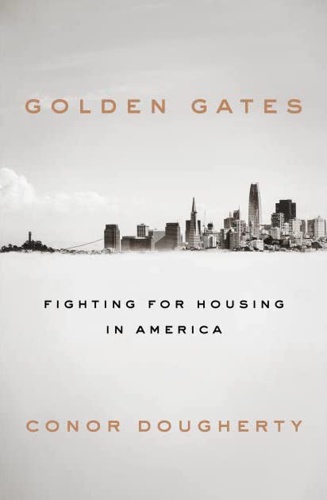
A book about San Francisco Bay’s dysfunction and its strange anti-growth politics. With local politicians and every-day Joes as his characters, Dougherty explains how we arrived at our housing crisis with a strong narrative and a sprinkling of economic theory. Well-intentioned ideologies can have nasty side effects. Turns out that if you call yourself a progressive, protect the current land owners from the market with tax law, and cover your eyes to pretend there aren’t millions of additional people who want to live in your cities you’re not actually solving a problem but delaying the inevitable.
The practical question for California was what if anything the government should do to protect the potential victims of displacement when local politics refused to listen to what prices were telling them, and even if they had listened had to contend with a forty-year supply hole that it would take decades to dig out of.
I was already biased coming in, but living in San Francisco for the last 7 years has definitely made me more skeptical of government. It really all boils down to zoning.
Black Mass - John Gray

When we were in Michigan for Hannah’s family reunion we went to a used bookstore, and her sister Rachel thought Black Mass sounded up my alley. She was right. While I had never read Gray before, after reading this book I started to see him quoted everywhere, and could read his arguments between the lines in other pieces.
Black Mass is a strange book, in that it mixes political science with history and religion, and is far reaching in it’s scope along all three axes. Gray traces a line from millenarian Christianity to the Enlightenment thinkers and all the way through modern political movements of all stripes - Nazis, Bolsheviks, and even the Anglo politicians pre and post Cold War are painted with the same brush. In Gray’s view, all these movements are chiliastic, expecting some kind of catastrophe or breaking point which the movement will bring about to open up the next phase of history, which will be a better utopic world than the one we live in today. In this regard, all of these movements had a similar frame, even if a different ultimate goal. The second half of the book is much narrower in focus, with a scathing critique of the US war in Iraq. While neo-conservatives bear the brunt, liberals don’t come out scratch-free either. In the end, Gray argues that modern society has an irrational faith in progress, and advocates a shift that isn’t too different from Schiavone’s appeal to a new humanism. Iraq exemplifies this problem, in that fighting that war from a moral point of view requires a belief in invading to liberate, and to bring about a subjective “better future” for its people. The problem there is that not everyone buys into the same narrative, and as Gray says: “if universal narratives create meaning for those who live by them, they also destroy it in the lives of others.” Black Mass is a call to return to realism.
In Other Words - Jhumpa Lahiri
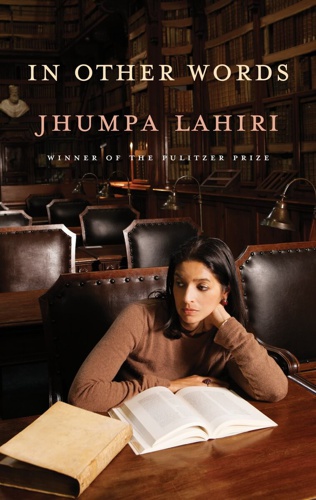
I first learned of Lahiri through her essay “Teach Yourself Italian” and became fascinated by the persona that Lahiri puts forward to the world: the daughter of Bengali immigrants to the US, who became prominent in her field, and then decided to reinvent herself in a whole new language.
This is the second of her books I read, after her novel The Namesake a few years ago. In Other Words covers a lot of the same ideas, but this time as non-fiction. Lahiri wrote her deeply personal memoir in Italian, and the English translation is printed side by side with the original. In it, the author describes the frustrating experience of an adult mind grasping for words to explain complex ideas but finding the language of a child, needing to continuously look at dictionaries and thesauri, and struggling through years of that experience to reach mastery. She also describes the resentment of living in Italy, devoting herself to learning its language and its culture, and still being seen as an outsider.
This was a great read. An exploration of self-imposed exile, with its ups and downs, where many concepts resonated with me.
The Silk Roads - Peter Frankopan
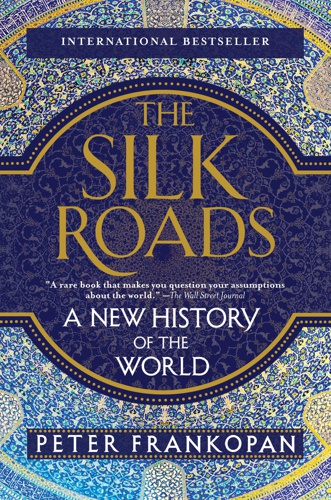
This is another one that’s been in the to-read list for way too long. In a field that’s generally Eurocentric, Silk Roads is a broad revisionist history, presenting the claim that Asia shaped much of the modern Western world, both through it’s philosophies and its centers of commerce. While discussions about antiquity tend to discount much of the medieval era, Frankopan leads us further East where a lot is happening in the globalized world of millenia past. Importantly, this is not a book about the Silk Roads, but instead about how trade in luxury goods coming from there into Europe shaped the political layout of our current world. I found the discussions on Zoroastrian thought, Manichaeism, and the Christian schisms of the middle ages fascinating, as these are areas I don’t really know much about. The sections on Viking Rus, the Mongol Khanate, and Sogdian merchants were similarly captivating. The chapters on the crusades were possibly the most interesting, even if not so innovative.
In the end, and not surprising me at all, what was behind all these divisions and conflicts was really power struggles over money: “Despite the insistence of many sources that high politics and religion mattered, for most merchants and traders such issues were complications that were better avoided altogether”. This is true when talking about crusaders in Jerusalem, or the industrial era’s fights over oil. All of these are questions of who has access to some resource, and can therefore make a claim on the power they represent, both purchasing and literal.
While Frankopan tells the story from an unorthodox angle, he’s not really bringing the historical record to question, but merely reinterpreting the same events. I found the self-flagellation when describing European violence and colonization unnecessary, especially as it was contrasted with a fairly uncritical view of the non-European cultures involved. Even so, the book introduced me to many societies and helped me deepen my understanding of others’ ways of life, tying them all to the present we live in, which I really appreciated.
20 Sobre 21 - Albino Chacón, G.A. Chaves, Gustavo Solórzano-Alfaro

After seeing Gustavo, my friend and high school literature teacher tweet about this book, I asked my mom to find it for me – I knew I wasn’t going to find this essay anthology on Amazon (although apparently there is a kindle version!).
I don’t read much literary critique, and when I do it tends to be about authors whose works I know well, but in this case I had never heard of the majority of these folks before, making for a disorienting but fun experience. I especially enjoyed reading about Fabian Coto Chaves’ works, and being reminded of Juanjo Muñoz Knudsen’s Genial 2006, a book I had read years and years ago when a friend handed it to me on a beach trip. I remember reading Muñoz Knudsen’s characters talking to each other and feeling like for the first time I was reading a conversation between my friends. Reading other authors in 20 Sobre 21 might have similar effects on me, but to be honest I didn’t end up adding any of their books to my to-read queue.
I was surprised by how much of the writing bought into identity politics and gender conversations that in my head are very much US constructs. It made me wonder if I associate those with US culture because I’ve lived here since it’s become prominent, or if instead it’s just a current in Costa Riacn literary circles which I’m not exposed to when I go visit. Either way, I appreciated how reading it made me think of Costa Rican problems, language, and worldviews which I feel pretty distant from these days.
Telex From Cuba - Rachel Kushner
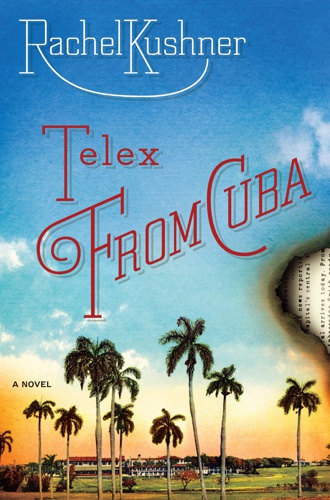
This was a book Hannah picked for us to read together, and I went in knowing nothing about it. The novel follows a family of Americans living in Cuba at the turn of the Revolution, who along with their expat friends run the nickel mines and cane fields in the country. Obviously, this makes a perfect setting to discuss race and class, but the fact that much of it is told through the eyes of rich kids who slowly start to make sense of their place in the hierarchy makes it a compelling read. I don’t know much about Cuban history, so I can’t tell how true to reality the characters are, but excluding a couple of chapters with an espionage bent that felt forced I found this to be high quality historical fiction.
Order without Design - Alain Bertaud

I learned of Bertaud through urbanist Twitter, where people often use his research on the interaction between markets, regulations, and transportation infrastructure to illustrate policy failures and point to potential solutions. Bertaud, an architect by training, was exposed to urban economists and their work early in his career, and applies the ideas of that field to explain urban development patterns. In Order without Design he heavily criticizes his field for their focus on central planning, trying to design an outcome, instead of designing a framework to which people will respond to by building the desired outcome via incentives. Drawing on his experience working on urban transport and land use projects in various cities around the world, Bertaud’s book explains the disconnect between modern urban planning and the reality on the ground. In short, Bertaud wants people to think about cities as labor markets, benefitting from agglomeration effects, and treating planning as market interventions. The explicit goal of his book, and the class he teaches at NYU on the topic, is to get urban designers to talk to more economists.
The book was definitely more textbook-y than what I normally read, but I enjoyed it quite a bit. The diagrams were also great. While the standard urban economic model which Bertaud uses to illustrate many of his points is an obvious oversimplification, it is a very useful tool. Bertaud uses Soviet and Chinese cities as examples of distorted markets, which due to their central planning don’t fit the model, showing that when they opened their markets and people get to vote with their money and their feet, cities change in response.
Overall, the book felt very Hayekian, arguing for the application of local knowledge and bottom up solutions using prices as signals to shape cities. Maybe it reveals too much of my own politics, but I agreed with nearly everything. The goal of cities is to increase their peoples’ economic prosperity. Let’s start acting like it.
You can find my lists from previous years here: 2020 2019, 2018, 2017, and 2016.
Photo: Home bookshelf and guitar case, by me. Previously posted on Film I.
Want to see more articles like this? Sign up below: